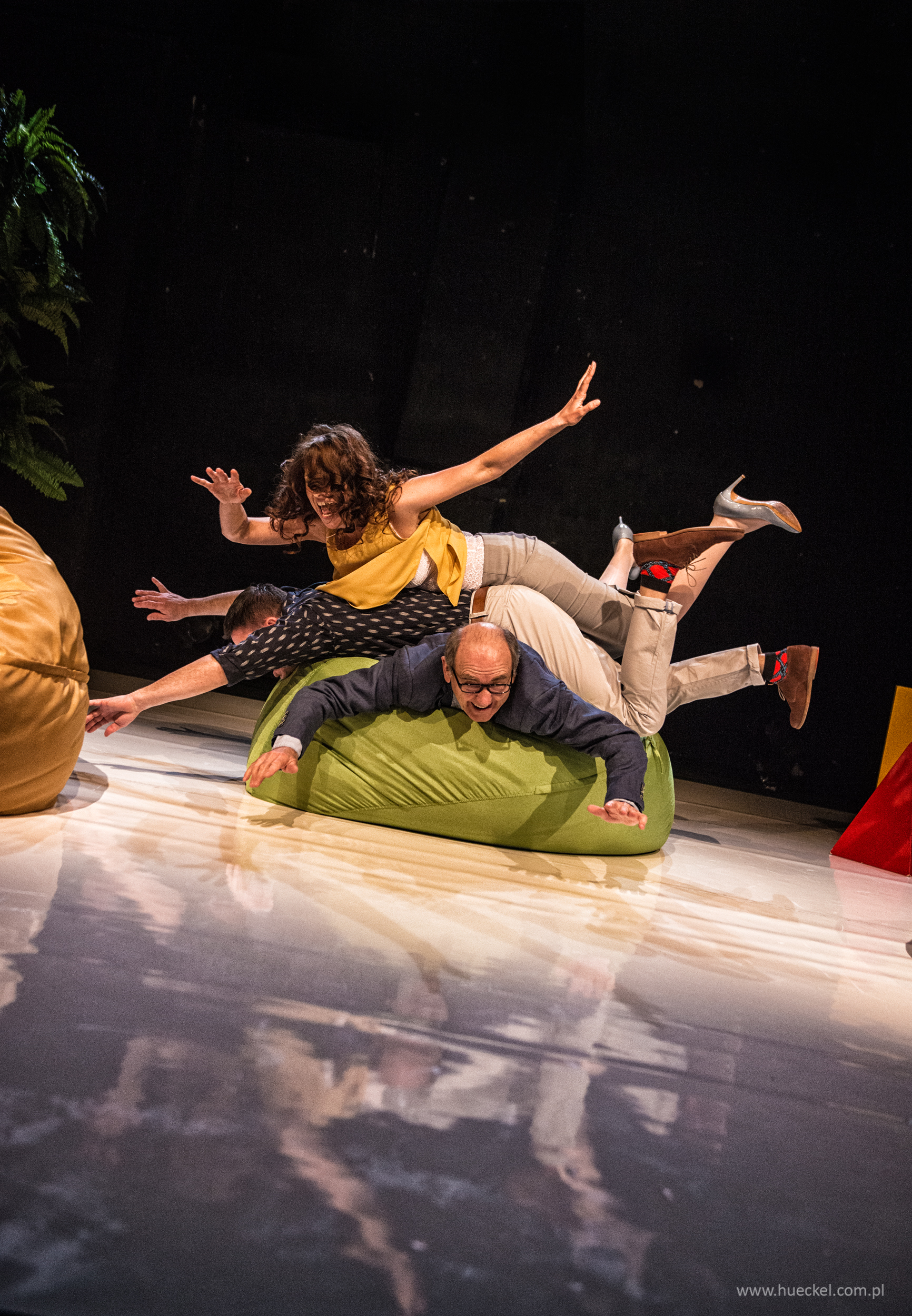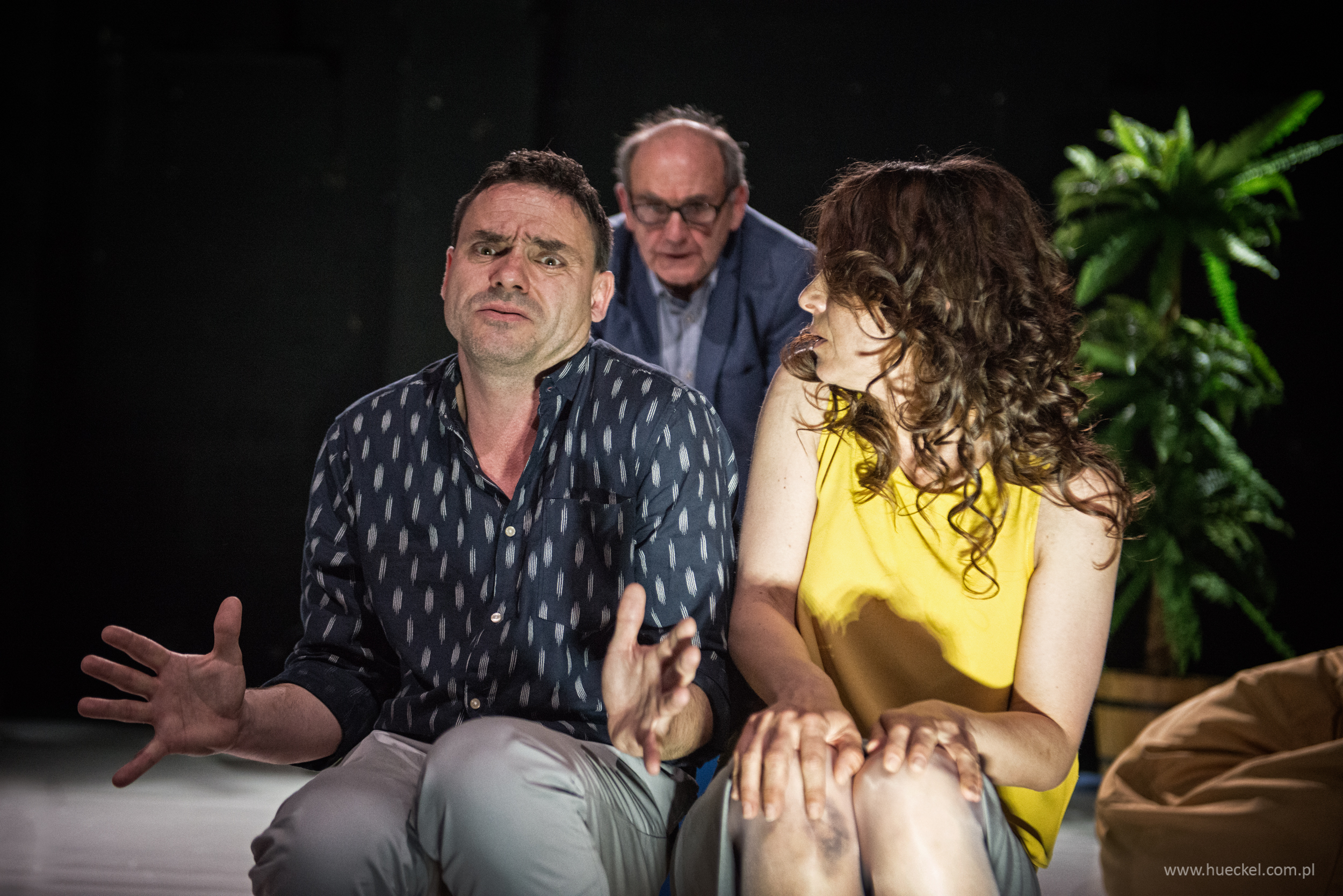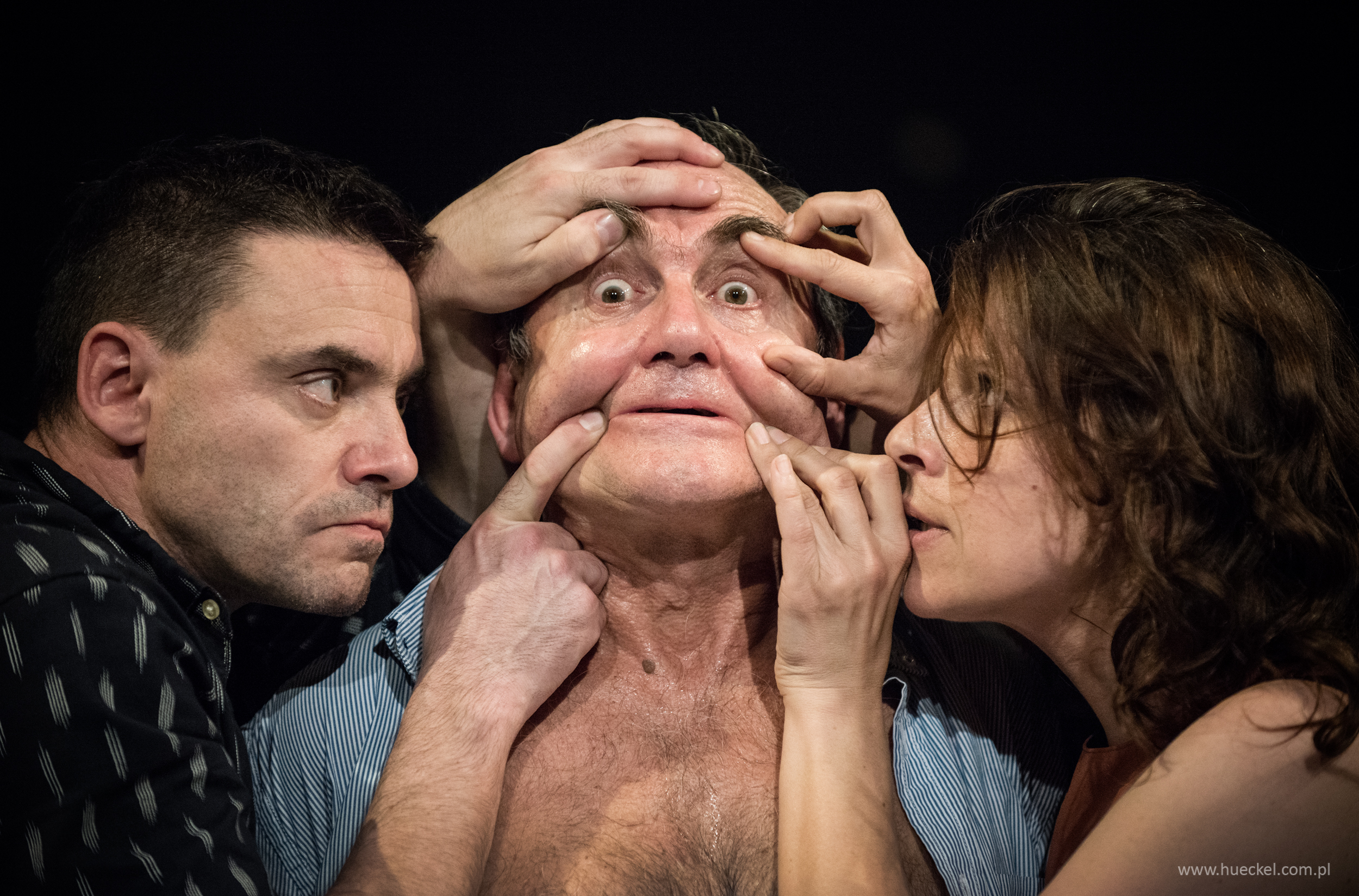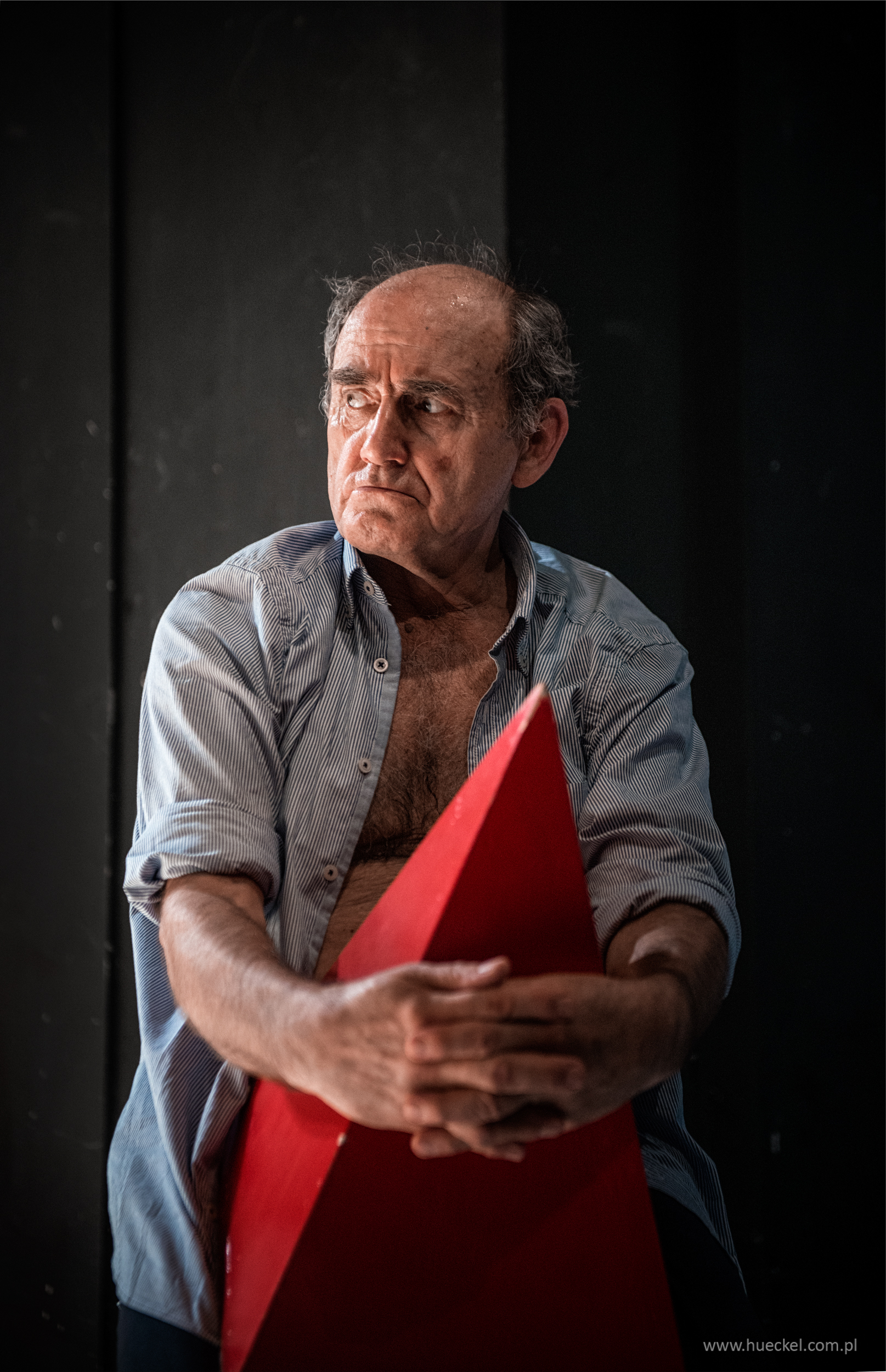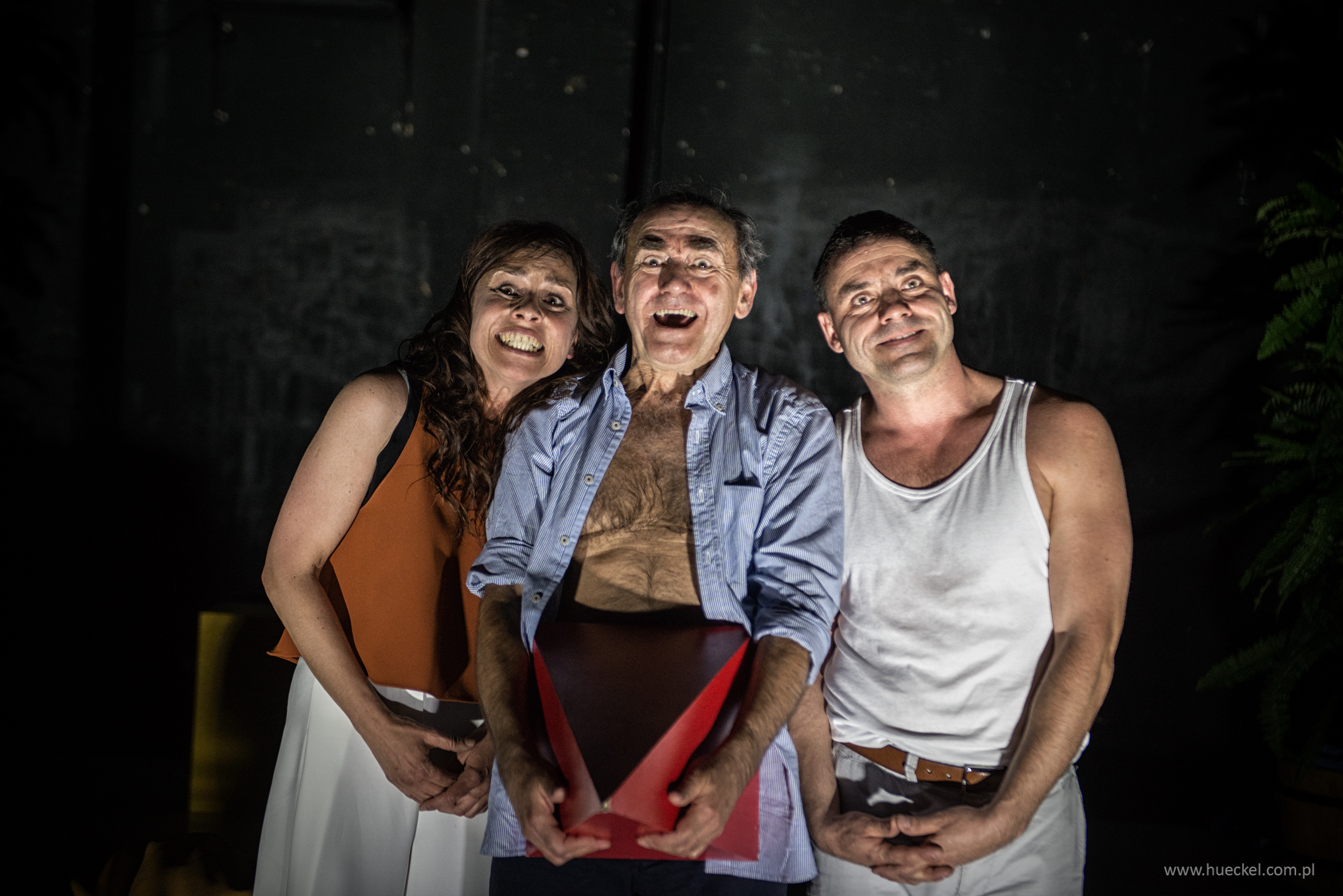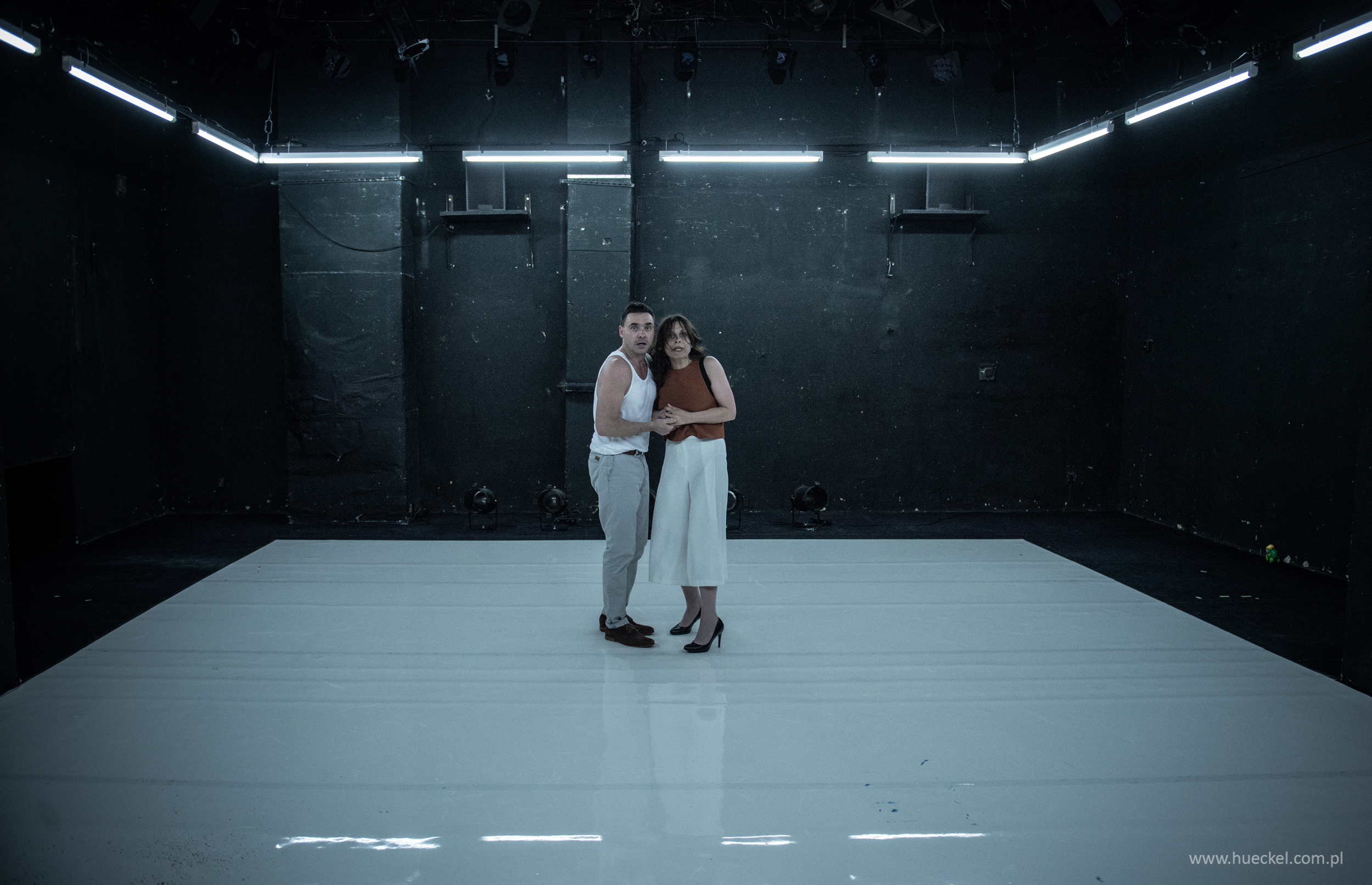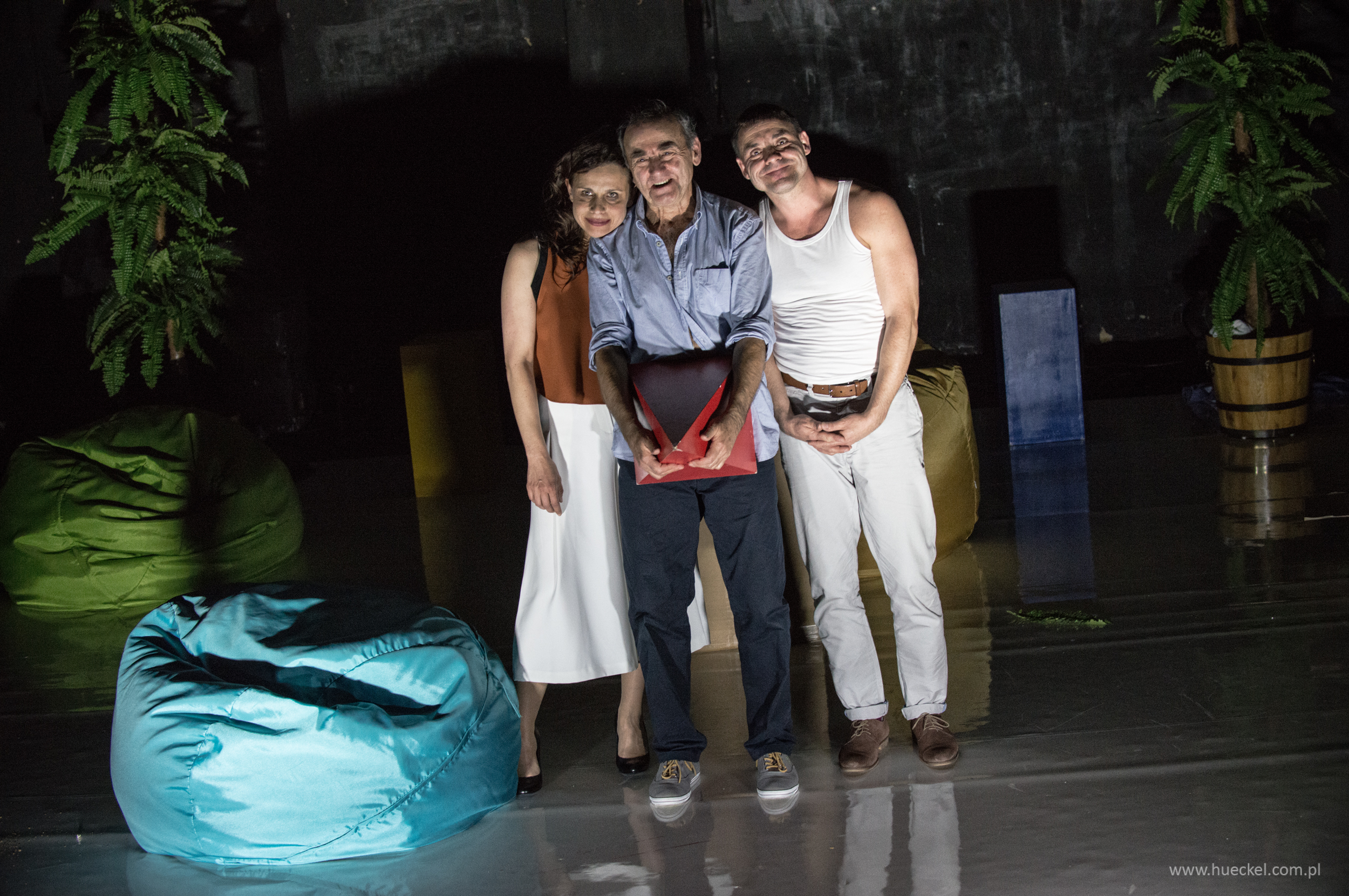Actors
Actors

Jan Peszek
Graduate of the Acting Faculty of the Ludwik Solski State Theatre School in Krakow (1966)
“This artist has achieved extraordinary fluency of technique, allowing him to join realistic detail with a metaphorical message, comedy and tragedy stamped with the grotesque and metaphysical contemplation. Jan Peszek’s acting moves through all spaces with authentic freedom, always striking a balance between content and form”—this was part of the laudatory speech Tomasz Miłkowski gave the actor on behalf of the Polish section of AICT (International Association of Theatre Critics) when the artist was being given the Boy Award 2021 (Dziennik Trybuna no. 230).
Open to experimentation, the “eternal anarchist” Jan Peszek has, in recent years, worked with directors of the younger generation, including Remigiusz Brzyk, in whose “Kingdom” he played the part of the Dishwasher (alternating with Krzysztof Globisz), and Jan Klata. Among the plays by the latter director, some have gone down in legend, including Jan Peszek’s Stańczyk in the famous staging of “The Wedding” and the dazzling Tuhaj-bej/Janusz Radziwiłł in “The Trilogy.” “The dance by Peszek (Leo Bulero) in ‘The Three Stigmata of Palmer Eldritch’ has gone down in the history of the theatre. Its bravado brings to mind his first theatre experiments with MW2 Theatre. Jan Peszek is an actor of incredible transformative capabilities. With one look on his unusually pliable face, a gesture, one move of his incredibly agile body, he can transform from one character to another” (Jolanta Ciosek, Dziennik Polski no. 195). His Theseus from Racine’s “Phaedra” and Ulysses from Kochanowski’s “Dismissal of the Greek Envoys” directed by Michał Zadara were bold confrontations with myth, shattering well-worn formulae, open to reality seen through young people’s eyes. Another example of breaking apart formulae came in his role as a child in “Father Mother Tunnel of Fear” by Wojtek Klemm, which was best summed up by Maciej Stroiński (teatrjestcute.pl): “Jan Peszek is a star, though he never imposes himself on stage, he doesn’t need to do anything to make an impression.”
Jan Peszek has also made his name as a director and an instructor, lecturing at Krakow’s Theatre School, and running actor workshops throughout Europe and in Japan. After graduating from acting studies at the Theatre School in Krakow, he made his debut on the Polski Theatre stage in Wrocław in 1966 in Brecht’s “Career of Arturo Ui,” directed by Jakub Rotbaum. After nine seasons, he left Wrocław to perform in these consecutive theatres: the Nowy and Stefan Jaracz in Łódź, the Polski in Poznań, and the Juliusz Słowacki in Krakow. He joined the Stary Theatre in 1986. In 1992, while still working at the Stary, he gave up his full-time contract with the theatre, becoming one of Poland’s first freelance actors, appearing on many stages in Poland and abroad. When Mikołaj Grabowski became director of the Stary Theatre, he returned to the ensemble in 2003, which bore fruit in some stellar roles: Gombrowicz in “Tango Gombrowicz” based on “The Diary” and “Trans-Atlantyk” (with the famous scene of saving beetles on the beach), another incarnation of Gonzalo in “Trans-Atlantyk” and Hołysz/Mask in Wyspiański’s “Liberation,” as well as his remarkably evocative creations in a number of plays by Paweł Miśkiewicz: the immigrant Fadula in Loher’s “Innocence,” the sinologist Kien in his own scholarly world in Canetti’s “Auto da fé,” Worker I in Schimmelpfennig’s “Before/After,” and a refugee in Elfriede Jelinek’s “The Supplicants.”
An artist who is ahead of his time, delving into the mystery of the actor’s being, merging virtuosic craft, a discipline of form, emotional challenges, and mystical sublimity with an awareness of the theatrical illusion. His original creative choices began quite early, during his studies, when he joined the avant-garde MW2 group in 1963. Encountering Bogusław Schaeffer, and his music and drama, considerably defined Peszek the actor. For over thirty years he has been performing a monodrama Schaeffer wrote specially for him, “Script for a Nonexistent though Possible Instrumental Actor.” Jan Peszek entered the Stary Theatre as a mature actor, fully formed, yet eternally exploring, open to new challenges. He began with the role of Abel Wunderchvast in Kubin’s “City of Dreams,” directed by Krystian Lupa, years later creating a masterpiece of acting with the same director as Fyodor Karamazov in Dostoevsky’s “Brothers Karamazov.” Andrzej Wajda entrusted him with a diverse range of tasks: Reb Azriel in An-ski’s “Dybbuk,” a Player and the Gravedigger in Shakespeare’s “Hamlet (IV),” the Groom and Stańczyk in Wyspiański’s “Wedding,” and finally, the Owner and Iwakichi in Mishima’s one-acts, roles that captured the specificity and distinctiveness of the Japanese world. The light, sophisticated, and vocally superb Fior in Gombrowicz’s “Operetta” directed by Tadeusz Bradecki was a triumph of technical discipline, chiselled nuance, subtlety of gesture, and self-effacing humour. Special importance goes to the actor’s work with Rudolf Zioło, in whose plays he created characters full of bravado, acrobatic panache (Oberon in “Midsummer Night’s Dream”), magic, and philosophical contemplation (Prospero in “The Tempest”), the fairy-tale charm inscribed in commedia dell’arte (Altum and Truffaldino in Gozzi’s “Princess Turandot”) and metaphysics (the compelling and well-rounded Jakub in Schulz’s “Republic of Dreams”). The devastating Ivan Ilyich in “The Death of Ivan Ilyich” based on Tolstoy, the cold, conniving “devil incarnate,” i.e. the Senator in “Forefathers’ Eve—Twelve Improvisations” were his characters from the dreamlike plays of Jerzy Grzegorzewski. Beginning with his screen debut in “Road Signs” (1969), Jan Peszek played in several dozen Polish films, including Falk’s “There Was Jazz,” Wójcik’s “Bermuda Triangle,” Skolimowski’s “30 Door Key,” Kutz’s “Death Like a Hunk of Bread,” Gliński’s “Swan Song,” Marczewski’s “Escape from Freedom Cinema,” and Wylężałek’s “Polish Freeloader.”
In the Theatre
In the repertoire
- The Wedding - Stanczyk **
- Father Mother Tunnel of Frights

